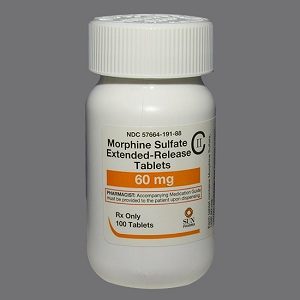Description
Nembutal sodium
Nembutal sodium, also known by its generic name, pentobarbital sodium, is a powerful sedative and barbiturate medication. It has gained notoriety as a substance used for various purposes, including medical, veterinary, and sadly, in some cases, for assisted suicide. This comprehensive article will explore Nembutal sodium in detail, from its history and medical uses to its legal status and potential risks.
Introduction
A. History of Nembutal Sodium
Nembutal sodium was first synthesized in the early 20th century by the German chemist Emil Fischer. It was initially develope as a safer alternative to earlier barbiturate drug. Nembutal gained popularity as an anesthetic and sedative in the medical field and was widely use during surgery and for the treatment of insomnia and anxiety disorder.
Chemical Composition
Nembutal sodium belongs to the barbiturate class of drugs, which act on the central nervous system to produce a calming or sedative effect. Its chemical formula is C11H17N2NaO3, and it is available in various forms, including capsules, oral solutions, and injectable solutions.
Medical Uses
Sedation and Anesthesia
One of the primary medical uses of Nembutal sodium is its role as a sedative and anesthetic. It is use to induce and maintain anesthesia during surgical procedures and medical interventions.
Treatment of Seizures
Nembutal sodium has also been prescribed to treat certain types of seizures, particularly those that are difficult to control with other medications. However, due to the risk of dependence and overdose, it is typically reserved for cases where other treatments have failed.
End-of-Life Care
In some countries and states, Nembutal sodium is legally prescribed for terminally ill patients who wish to have control over the timing and manner of their death. This is often refer to as physician-assisted suicide or euthanasia, and it remains a highly controversial and debated topic worldwide.
Legal Status
A. Prescription-Only Med
A. Prescription-Only Medication
Nembutal sodium is classified as a prescription-only medication in most countries. This means it can only be legally obtain with a prescription from a license medical practitioner for approved medical purposes. The laws and regulations regarding its use vary widely from one jurisdiction to another.
Restrictions and Bans
Several countries and states have implemented strict regulations or bans on the use of Nembutal sodium for assisted suicide or euthanasia. These laws are often a response to ethical and moral concerns surrounding the drug’s use in ending human life.
Black Market and Illicit Trade
Despite legal restriction, Nembutal sodium has found its way into the black market, where it is sometime sold illegally for non-medical purpose. This poses significant risk to individual who obtain and use the drug without proper medical supervision.
Risks and Side Effects
A. Dependence and Addiction
Nembutal is a potent sedative with a high potential for dependence and addiction. Prolonged use, even when prescribed medically, can lead to physical and psychological dependence, making it challenging to stop using the drug.
Overdose and Death
Barbiturates like Nembutal are associate with a high risk of overdose, which can be fatal. Overdose symptoms include respiratory depression, extreme drowsiness, and loss of consciousness. In cases of severe overdose, it can lead to respiratory failure and death.
Side Effects
Common side effects of Nembutal use include dizziness, nausea, vomiting, and confusion. These side effects can vary in severity and may require medical attention if they persist or worsen.





Reviews
There are no reviews yet.